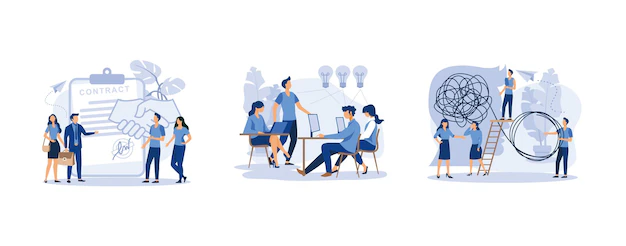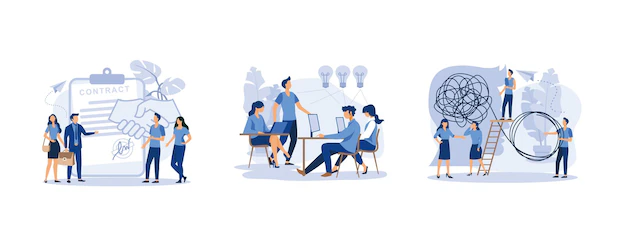Maximizing Work Environments: The Role of Industrial-Organizational (I-O) Psychology
Industrial-Organizational (I-O) Psychology represents a vital domain that merges psychological principles with workplace dynamics, aiming to optimize organizational effectiveness, employee satisfaction, and overall well-being within work environments.

Page Contents
Understanding Industrial-Organizational (I-O) Psychology
Workplace Dynamics:
I-O Psychology is centered around comprehending human behavior within the workplace. It investigates how organizational structures, culture, and practices influence employee behavior, motivation, and productivity.
Application-Oriented Focus:
Professionals in I-O Psychology utilize psychological insights to improve workplace practices, including employee selection, training, performance evaluation, and leadership development.
Core Focus Areas:
I-O Psychology encompasses various focal points, including personnel selection, training, performance appraisal, and organizational behavior.
Key Focus Areas in I-O Psychology
| Focus Area | Description |
|---|---|
| Personnel Selection | Involves designing and implementing selection processes to identify candidates aligning with organizational needs and culture. |
| Training and Development | Focuses on designing and executing training programs to enhance employee skills and knowledge for improved job performance. |
| Performance Appraisal | Involves developing evaluation systems to assess employee performance and provide constructive feedback for growth. |
| Leadership and Organizational Behavior | Studies leadership styles, group dynamics, and organizational culture to foster effective leadership and teamwork. |
Applications in Practice: Table Sample
| Applications | Description | Example |
|---|---|---|
| Enhancing Workplace Productivity | Implement strategies, such as optimizing workflows or improving communication channels, to maximize productivity and efficiency within the organization. | Introducing new software to streamline tasks. |
| Improving Employee Satisfaction | Address work-related stressors, enhance job satisfaction, and promote a healthy work-life balance to create a more satisfying work environment. | Offering flexible work hours or remote options. |
| Talent Management | Strategic planning for talent acquisition, retention, and development to nurture and retain top talent within the organization. | Implementing mentorship programs for growth. |
| Diversity, Equity, and Inclusion | Promote diversity, equity, and inclusion efforts within the workplace to create an environment that values and supports diverse perspectives and backgrounds. | Implementing training on unconscious bias. |
Personnel Selection Methods: Example
Method: Behavioral Interviews
Description: Behavioral interviews focus on past behavior to predict future performance. Interviewees are asked to provide specific examples of how they handled situations in previous roles, providing insights into their skills and approach.
Example: A candidate applying for a managerial role is asked to describe a time when they resolved a conflict within a team. Their response details the specific steps they took, demonstrating their conflict resolution skills.
Role in Modern Work Environments
Remote Work and Technology Integration:
I-O psychologists adapt practices to remote work settings, ensuring the effective integration of technology and supporting employee well-being in remote environments.
Diversity and Inclusion:
By fostering diversity, equity, and inclusion, I-O psychologists promote an organizational culture that values diverse perspectives and ensures equal opportunities for all employees.
Conclusion
Industrial-Organizational Psychology plays a pivotal role in creating dynamic and productive workplaces. Through strategic applications, such as talent management, diversity initiatives, and personnel selection methods like behavioral interviews, I-O psychologists facilitate environments that nurture talent, enhance satisfaction, and drive organizational success.
This table highlights various applications of I-O Psychology in practice, demonstrating how these principles are applied to enhance productivity, improve satisfaction, manage talent, and foster diversity within work environments. Additionally, the example of behavioral interviews showcases a specific personnel selection method used in hiring practices.







